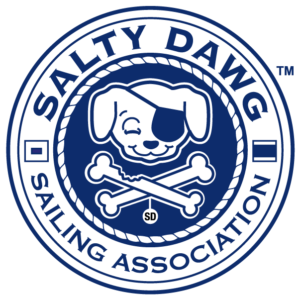Sailing with PetsOUR PETS ARE GUESTS IN OTHER COUNTRIES Taking your pets along while sailing to foreign countries is not only doable, but enjoyable. We've had dogs, cats, parrots, and hamsters (no frogs!) on board rally boats. But you must do your homework and start well in advance of your passage to have the proper paperwork to clear your pet into a country. Requirements for pet clearance or importation vary a bit from island to island. Remember, you are in another country, and you MUST follow their rules. Requirements differ from country to country and without notice. You may find all current requirements on the USDA APHIS site.
Paste the following URL into your browser: https://www.aphis.usda.gov/aphis/pet-travel/take-pet-to-foreign-country For the 2025 Caribbean Rally, you may decide to work with a local vet who is capable of completing the international requirements. We will also have a local vet in Hampton, Dr. Andrew Silverstone, who will be contacting all Pet Boats via email to share services available by his team before the rally.
For the Bahamas- Entrance into the Bahamas is easier than most other countries, but the requirements have been increasing recently. Be sure to check the above website and work with a vet capable of completing the paperwork.
For most Caribbean countries - other than the Bahamas:
You will need an International Health Certificate. Start well in advance of your departure. It can take two months for the tests and vaccinations to get completed. When you export an animal, you must obtain a Health Certificate from a USDA Veterinary Officer. Not all local vets can not issue this Health Certificate.
Obtain a microchip for each pet with a 15 character ISO certified microchip. Vaccinations must be done after micro-chipping so that the micro-chip number is listed on the vaccination certificate and other health records. Step 3: Have your vet administer all other vaccines, medications, and tests (For example - Some islands will also require evidence that your dog tested negative for Ehrlichia and Lyme) in the prescribed timelines. Specifically, most islands do not accept the 3 year rabies vaccine, so even if your pet received the 3 year, you'll need to do it annually. The blood draw for the rabies titer should be done AT LEAST 30 DAYS AFTER the rabies vaccine is administered.
Step 5: When you receive the results from KSU, scan the results and certificates (you might also include Patient Record and IDEXX results) into one PDF document. Here is an example for two dogs. Step 6: Send an initial email to all countries you plan to visit with an approximate arrival date. They usually send a Pet Import form with a link to their requirements. BE SURE to see if they require any medications administered immediately before arrival. Follow-up two weeks before your arrival to arrange a time and location to meet the vet. A FEW THINGS TO REMEMBER:
|




